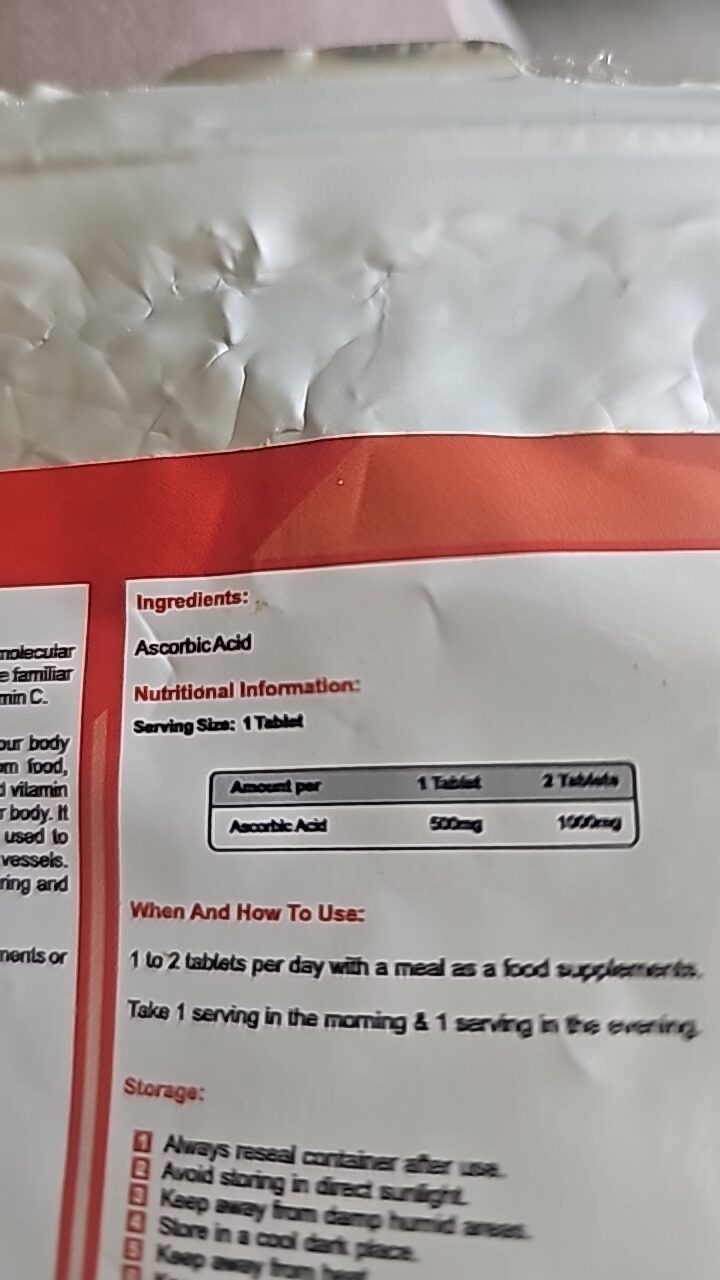
Barcode: 004209656372
HALAL
📝 Reason: Islamic jurisprudence deems this fully Halal. Quran 5:88 mandates eating what Allah has provided for you, lawful and good. This product contains only plant-based or Zabiha-slaughtered ingredients (6:118), with no doubtful emulsifiers or undisclosed enzymes.
📄 Certificates: When And How To Use:, 1 To 2 Tablets Per Day With A Meal As A Food Supplements., Take 1 Serving In The Morning & 1 Serving In The Evening., Storage:, Always Reseal Container After Use., Avoid Storing In Direct Sunlight., Keep Away From Damp Humid Areas., Store In A Cool Dark Place., Keep Away From Heat
Ingredients:
Details
Understanding the Halal Status of Ascorbic Acid
In today’s world, many consumers are increasingly concerned about the Halal status of the products they consume. One such compound that often raises questions is Ascorbic Acid, commonly known as Vitamin C. Its presence in various foods and supplements can lead to doubts regarding its compliance with Islamic dietary laws. So, is Ascorbic Acid Halal? Let’s explore its status.
Halal Status and Religious Adherence
According to Islamic jurisprudence, Ascorbic Acid is deemed fully Halal. This is based on the guidelines outlined in the Quran. Quran 5:88 explicitly states that Muslims should eat what is lawful (Halal) and good. The primary ingredient in Ascorbic Acid is derived from plant sources, which aligns with the criteria for Halal foods outlined in Quran 6:118. These verses support the notion that Ascorbic Acid meets the necessary requirements for consumption by observant Muslims.
Analyzing the Ingredients and E-Numbers
When it comes to pinpointing what makes Ascorbic Acid lawful, it is crucial to review its ingredients and any associated E-numbers. In this case, Ascorbic Acid is characterized by the following:
- E-Number: Ascorbic Acid is not assigned a specific E-code as it is primarily known by its chemical name rather than an E-number designation.
- Name: Ascorbic Acid
- Status: Permissible in Islam.
- Details: The plant-based origin of this compound ensures that it meets Halal requirements.
Components of Ascorbic Acid
Ascorbic Acid acts as a powerful antioxidant that not only benefits human health but has also been confirmed to be obtained from plant sources. This clarity helps dispel any doubts about its adherence to dietary laws:
- Absence of doubtful emulsifiers, which are common culprits in non-Halal ingredients.
- No undisclosed enzymes that could potentially compromise its Halal status.
The Brand and Certification Context
While the product’s specific brand and category were not provided, it is essential to emphasize the significance of obtaining products with reputable Halal certification. A well-regarded brand will ensure that all of its ingredients adhere to Halal standards and have been verified through appropriate certifications.
For anyone searching for credible Halal products, look for certifications from recognized Islamic bodies that attest to the adherence to Halal regulations. Such certifications not only provide confidence but also ensure peace of mind in today’s increasingly complex food landscape.
Usage Recommendations
As for utilization, recommendations are quite straightforward. The makers typically indicate that one to two tablets of Ascorbic Acid should be taken daily with meals to optimize the supplement’s benefits. The importance of proper storage cannot be overlooked either; it is always recommended to seal the container after use, keep it away from direct sunlight, and store it in a cool and dark place.
Conclusion
In conclusion, Ascorbic Acid is confirmed to be Halal, boasting a straightforward, plant-based origin that meets Islamic dietary laws. Its status as a permissible ingredient is clear, making it a safe choice for Muslims seeking reliable supplements. Always ensure that the product you choose comes with strong Halal certifications to guarantee adherence to your dietary needs.
